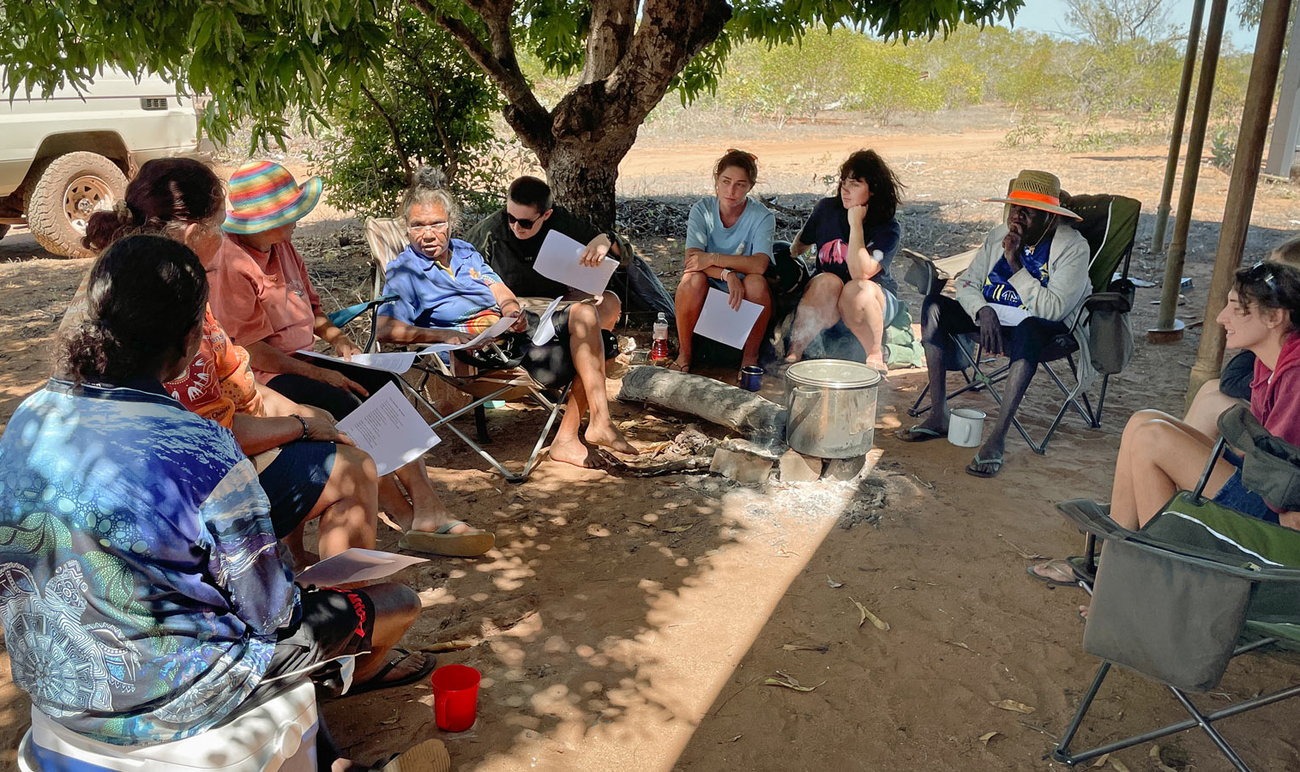
Lardil and Kayardild women singing on Mornington Island.
The Bidngen Wayikun project was initiated by Lardil and Kayardild women to seek access to professional voice tutoring and linguistic support in reviving important women’s song traditions including birthing songs, lullabies, hunting songs and the Seven Sisters song cycle.
Many of these songs were previously recorded and the recordings held in archives such as AIATSIS and the South Australian Museum. However, due to many historical and social factors, these songs had not been sung by women at Mornington Island for around 40 years.
Women on Mornington Island expressed strong feelings that much attention had been paid to men’s burdal (public corroboree) singing over the past few decades, while traditional women’s songs have taken a back seat and are not widely known. Participants wanted to develop skills and confidence in singing and voice quality alongside learning the language, pronunciation and singing style of the traditional women’s songs.
Participants
Dora Thomas, Lorraine Thomas, Farrah Linden, Renee Wilson, Dessica (Annie) Rogers, Joelene Roughsey, Karen Chong, Wandid Jacob, Dolly Loogatha, Betty Williams, Regina Naranatjil, Koda Lorraine, Susan Binjari, Carmel Binjari, Latoya Jacob and others who joined in for short sessions.
Watch the videos below to listen to Lardil and Kayardild women songs
Impact and evaluation
Women involved in the project reported significant positive social impact in a number of areas. The first and most obvious area was self-confidence in singing. At the beginning of the first session there was a lot of tension and most participants reported feeling embarrassed at singing in front of each other.
Knowledge of and connection with old people and singing traditions were also expanded and strengthened. Prior to the project there were some Lardil women who were expressing that they did not believe that women sang traditionally on the island since no traditional women's singing had happened in their lifetimes.
Some women came along specifically to listen to the recordings to confirm this. Through listening and talking with other women in the workshops they were also able to identify the singers on the old recordings and their relationship to them.
A deeper understanding of how the traditional songs work was also developed through the workshops. Two songs (Kunawuna and Bungkala) were explored in detail and after a few sessions there were a core group of four women feeling confident to sing these songs in two-part harmony.